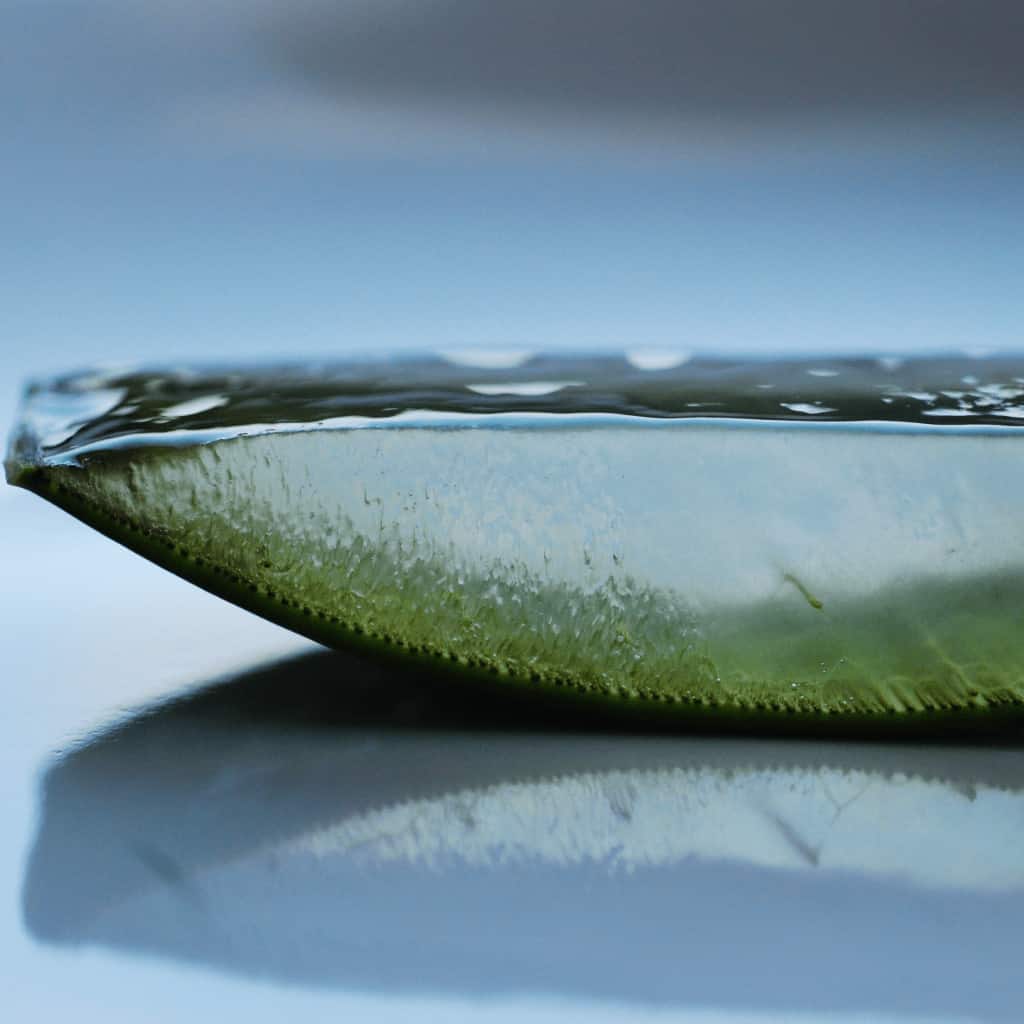At-A-Glance
- Aloe vera juice for GERD has healing properties that are proven.
- Known to the Egyptians 6,000 years ago as the plant of immortality, the aloe vera plant is again gaining a place of distinction amongst health-conscious people, and not just as a topical gel to treat wounds, skin infections, burns and other skin conditions.
- Research has shown that GERD – the type of acid reflux known for heartburn and indigestion – was reduced by consuming aloe vera.
- When we talk about the benefits of aloe vera for acid reflux, please understand that you’ll need to harvest the aloe vera gel from the plant yourself, not buy a bottle of aloe vera liquid.
- I’ve included a recipe of a smoothie I often enjoy.
Considering aloe vera juice for LPR, GERD or other acid reflux issues? Good!
It’s long been known that aloe vera has anti-inflammatory properties – that’s why rubbing it on an insect bite calms the itch – and there are claims that it helps with a bevy of other health conditions. But this study proved that aloe vera’s healing properties extend to acid reflux, specifically to those who have GERD.
A note about GERD: It is the best-known type of acid reflux. GERD (gastroesophageal reflux disease) occurs in about 20% of people with reflux. Many people think that if they don’t have symptoms like heartburn and indigestion, they don’t have acid reflux. But those are actually symptoms of GERD, which is the backward flow of stomach acid into the tube that connects your throat to your stomach (esophagus), which causes those obvious symptoms.
LPR (laryngopharyngeal reflux) is a far more common type of acid reflux, and the symptoms of LPR include too-much throat mucus, chronic throat clearing, hoarseness, a sensation of a lump in the throat, cough, difficulty swallowing, and difficulty breathing.
Aloe vera is good for all kinds of reflux, both LPR and GERD.
Finding & Preparing Aloe Vera Juice for GERD
It is the gel of the plant itself that is helpful for reflux, not bottled aloe vera juice drinks.
(Bottled aloe vera drinks have acids such as citric acid added by law so that bacteria won’t grow, which wreaks havoc on the stomach. for more about the acids in all soft drinks, see my Dropping Acid book.)
You can find aloe plants quite easily. More and more, this plant’s spiky leaves can be found popping up among the other mixed greens at local markets and health food stores. And you can always pick one up at a garden center near you.

A properly prepared inch or half-inch section of aloe vera can be added to smoothies for its health benefits and because it can enhance and smooth the texture of any smoothie. To prepare the aloe, cut off the amount of leaf you’d like to use, slice open the leaf, and slip the clear gel off the dark green leaf. Do not eat the dark green leaf, only the clear gel.
Recipe: Silky Pear Smoothie with Aloe Vera Juice for GERD

Ingredients
- 2 pears (peeled, cored, seeds removed and diced)
- 2 tablespoon brown sugar
- ½ teaspoon ginger
- 2 tablespoon aloe (cut a leaf of aloe in half and scrape the rich clear cream from a 2” to 3” piece of the leaf)
- 1 cup of yogurt
- 1 cup of ice (ideally, freeze alkaline water in a tray to make high-pH ice cubes)
Directions
Place all ingredients in a blender. Blend until it becomes smooth.
For You Refluxers: All of the Key Rules of Controlling Reflux Apply
I have written a best-selling book on the self-diagnosis and self-management of acid reflux. However, here are the most important pieces of advice I can offer:
- No eating or drinking within five hours of going to bed
- Sleep on an incline no less than 45-degrees (gravity helps)
- Eat five small meals
- No fried or high-fat foods
- No alcohol, chocolate or soft drinks (including fruit juice) of any kind
- Take Pepcid 20 mg. before each meal and before bed
- Take a tablespoon of Gaviscon Advance Aniseed after each meal and before bed (not available in stores in the U.S., but available online)
- Drink alkaline water as much as you conveniently can, especially after more acidic food/drink – bottled alkaline water is convenient, and/or consider buying an alkaline pitcher (and test it or anything else with pH paper or a pH tester)
If you’ve read one of my books and you’re following this guidance and you still need help, you can book a consultation with me.










